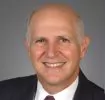When Robert Cordray, Director of the Consumer Financial Protection Bureau ("CFPB"), testified before the Senate Banking Committee in April, 2013, he attempted to reassure senators that the CFPB had no interest in tracking individuals' financial transactions, even though the bureau has access to financial information of millions of Americans.
Senator Mike Crapo, R-Idaho, the Committee's ranking Republican, who opposed the creation of the CFPB, was not convinced. He raised questions about the CFPB's ability to collect information, what it intends to do with it, and whether individual Americans could be identified through the aggregate data.
Director Cordray defended the actions of the CFPB by stating that the bureau collects data in three areas – credit cards, consumer credit reports and mortgages. He stated that the bureau purchases "anonymized" data on credit cards, just like private companies and other government regulators do. The bureau also purchases aggregated consumer reports from the same vendors used by the Federal Reserve Board of New York to create its own reports, and the bureau is working with the Federal Housing Finance Agency to create a mortgage database using anonymous mortgage records.
Cordray added that even if it is possible to "reverse-engineer" the aggregated data to track individual consumers, the bureau has no interest in doing so. Such action would be very difficult, and would violate a provision of the Dodd-Frank Act that bars the CFPB from collecting any personally identifiable financial information.
After that April Senate hearing, Senator Crapo requested the General Accounting Office ("GAO") to investigate the data collection program of the CFPB, and on July 18 the GAO announced that it would investigate whether the bureau had violated its authority and had breached any privacy rules.
Even while the GAO conducts its probe, Senator Crapo has continued to pursue the issue himself. On August 12 the senator held a news conference at the Idaho Statehouse in an apparent effort to pressure the CFPB to restrict its data collection practices. He said that all should be concerned about the amount of consumer financial data the CFPB is tracking, particularly in light of concerns over NSA tracking of phone calls and other federal agencies' use of data about Americans. While Senator Crapo acknowledged that the CFPB claims it is not collecting personally identifiable financial information on consumers, he maintained that the scope of its data collection process could lead to that.
Senator Crapo was joined at his news conference by Idaho's other senator, Jim Risch, Idaho Attorney General Lawrence Wasden, Tom Fitton, president of Judicial Watch, a conservative watchdog group from Washington, D.C., and John Zarian, a Boise attorney who handled a major California litigation over misuse of personal credit report data by Trans Union Corp. All warned of the dangers of misuse of individuals' financial data and the possibility of security breaches that could violate personal privacy.
The CFPB must walk a fine line between collecting enough data to make rules designed to protect consumers, and not collecting any personally identifiable financial information. Senator Crapo, the GAO, and others, will be watching closely to be sure the bureau does not cross that line.
The content of this article is intended to provide a general guide to the subject matter. Specialist advice should be sought about your specific circumstances.

